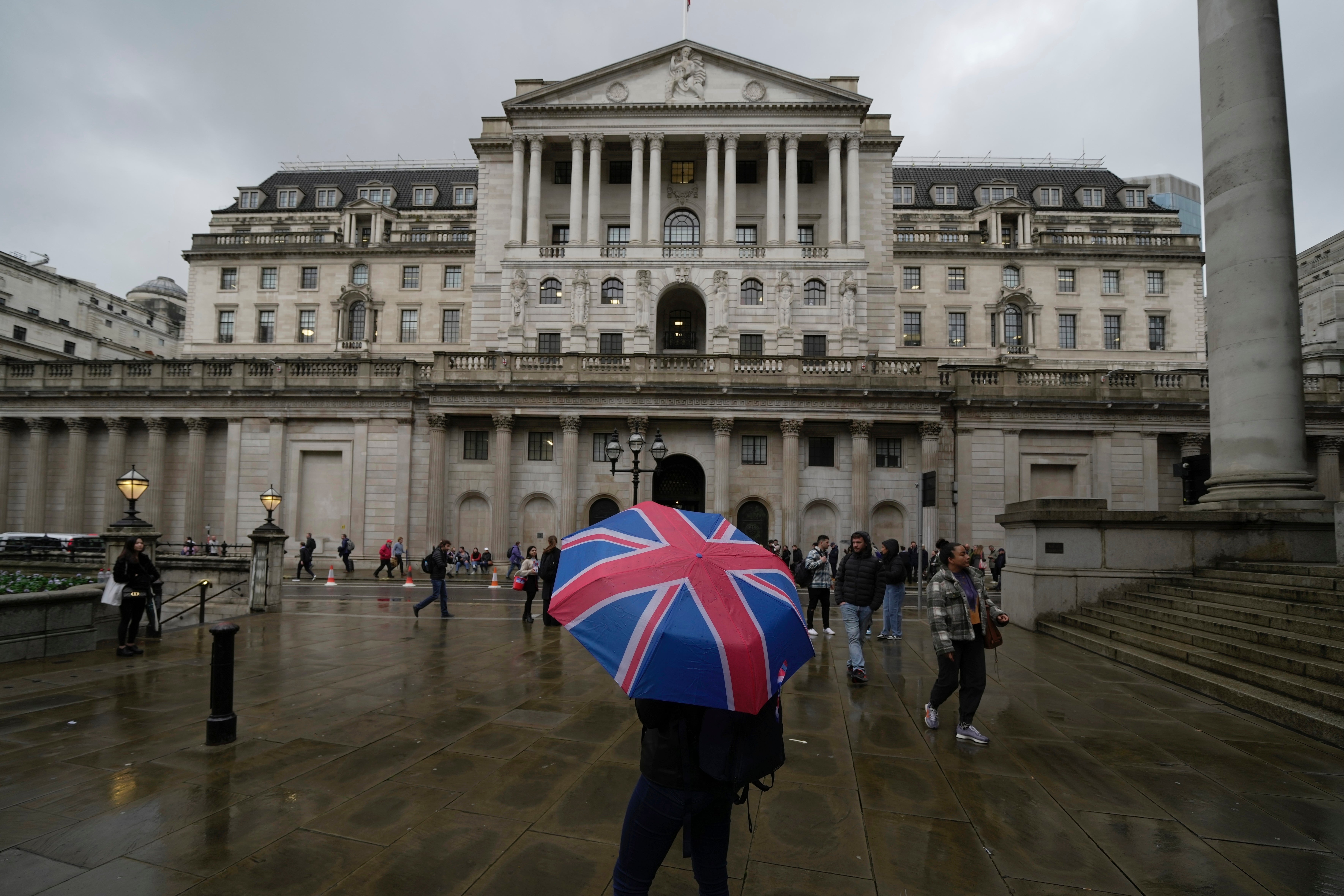Bank of England is set to cut interest rates despite potential new inflation worries
The Bank of England is set to cut interest rates for the second time in three months as inflation has fallen to its lowest level in more than three years

Your support helps us to tell the story
From reproductive rights to climate change to Big Tech, The Independent is on the ground when the story is developing. Whether it's investigating the financials of Elon Musk's pro-Trump PAC or producing our latest documentary, 'The A Word', which shines a light on the American women fighting for reproductive rights, we know how important it is to parse out the facts from the messaging.
At such a critical moment in US history, we need reporters on the ground. Your donation allows us to keep sending journalists to speak to both sides of the story.
The Independent is trusted by Americans across the entire political spectrum. And unlike many other quality news outlets, we choose not to lock Americans out of our reporting and analysis with paywalls. We believe quality journalism should be available to everyone, paid for by those who can afford it.
Your support makes all the difference.The Bank of England is set to cut interest rates later Thursday for the second time in three months, as inflation has fallen to its lowest level in more than three years.
However, economists warn that worries about the future path of prices following last week's tax-raising budget from the new Labour government and the economic impact of U.S. President-elect Donald Trump may limit the number of cuts next year.
For now though, the Bank of England is widely expected to reduce its main interest rate by a quarter of a percentage point to 4.75%. In August, the bank's nine-member Monetary Policy Committee cut borrowing costs for the first time since the early days of the coronavirus pandemic in the spring of 2020.
Central banks worldwide dramatically increased borrowing costs from near zero during the pandemic when prices started to shoot up, first as a result of supply chain issues built up and then because of Russia’s full-scale invasion of Ukraine, which pushed up energy costs. As inflation rates have recently fallen from multi-decade highs, these central banks started cutting interest rates.
Analysts said that policymakers are likely confident that inflationary pressures in the U.K. economy have eased enough for them to further ease the financial burden on businesses and mortgage holders. In the year to September, inflation stood at 1.7%, its lowest level since April 2021 and below the central bank's target rate of 2%.
The decision comes a month after Treasury chief Rachel Reeves announced around 70 billion pounds ($90 billion) of extra spending, funded through increased business taxes and borrowing. Economists think that the splurge, coupled with the prospect of businesses cushioning the tax hikes by raising prices, could lead to higher inflation next year.
“The budget won’t change the bank’s decision to cut rates again .... but it does question our long-held view that rate cuts will speed up from now on," said James Smith, an economist at ING.
The rate decision also comes a day after Trump was declared the winner of the U.S. presidential election. He has indicated that he will cut taxes and introduce tariffs on certain imported goods when he returns to the White House in January. Both policies have the potential to be inflationary both in the U.S. and globally, thereby prompting Bank of England policymakers to keep interest rates higher than initially planned.
The U.S. Federal Reserve is also expected to look past the implications of a second Trump presidency when it concludes its latest policy meeting also on Thursday. Like the Bank of England, the Fed is also expected to lower its main interest rate by a quarter of a percentage point.